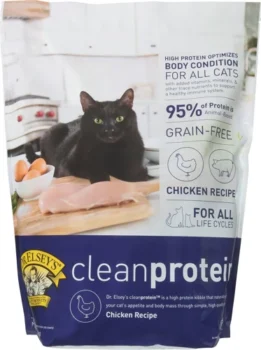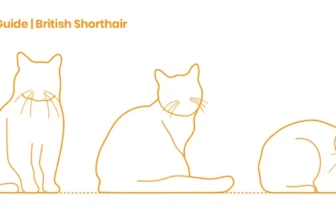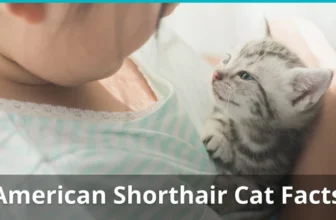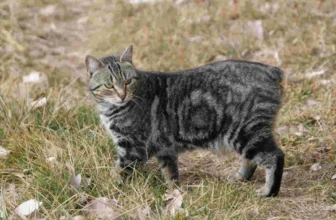As cat owners, we always want to ensure that our feline companions are healthy and happy. However, when our American Shorthair cats develop health issues, it can be a challenge to determine the best way to manage their dietary needs. Obesity, diabetes, and urinary tract problems are just a few of the common health issues that American Shorthair cats may face. But don’t worry, with the right information and guidance, you can still provide your furry friend with a proper diet that supports their health and wellbeing. In this article, we’ll explore the special dietary needs for American Shorthair cats with health issues and provide helpful tips for catering to your cat’s unique needs.
Common Health Issues in American Shorthair Cats
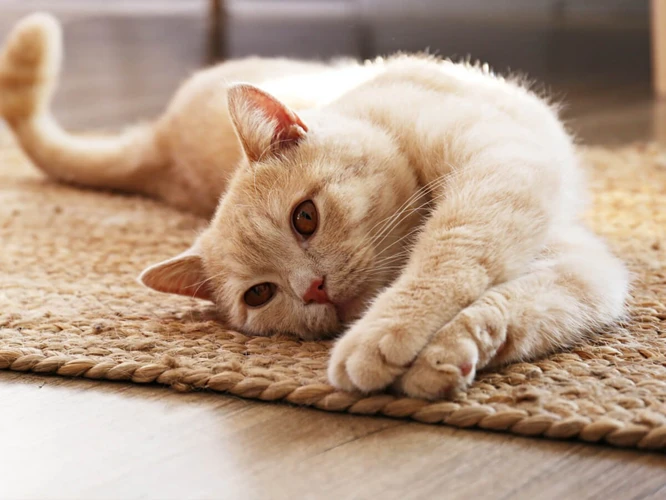
It’s important for cat owners to be aware of the common health issues that can affect their American Shorthair cats. Like any other breed, these cats are prone to certain health problems that require special attention and care. Some of the most prevalent issues that American Shorthair cats may face during their lifetime include obesity, diabetes, urinary tract issues, and genetic health issues. Understanding these health problems and their possible causes is crucial in maintaining your pet’s health and wellbeing. Consider scheduling regular vet checkups to ensure your cat stays healthy.
Obesity
Obesity is a common health issue in American Shorthair cats. A well-fed cat is not necessarily an overweight cat. However, the American Shorthair cats do have a predisposition to gain weight easily, which can lead to obesity. Obesity is unhealthy and can lead to other serious health issues such as diabetes, arthritis, and cardiovascular problems. Some of the signs that your American Shorthair cat may be overweight could include, a round belly, difficulty in jumping, reluctance to play, and a lack of interest in food.
Here are some tips to help keep your American Shorthair cat at a healthy weight:
- Provide a high-quality, well-balanced diet. Feed your cat food that is specially designed to keep their weight under control. Choose cat food that is low in calories, high in protein, and fiber. Avoid feeding your cat foods that are high in fat and carbohydrates.
- Exercise and playtime. Incorporate daily exercise and playtime into your cat’s routine. Encourage your cat to run and play. Make sure they have plenty of toys to play with and scratching posts to keep them active.
- Portion control. Measure your cat’s food and avoid free feeding. Divide their daily food intake into smaller meals throughout the day. You can also use feeding toys and puzzles to make meal time more interesting.
- Consult with your vet. Talk to your vet about your cat’s weight and get their advice on a healthy diet and exercise plan. Your vet can also help determine if any underlying health issues may be contributing to your cat’s obesity.
Keeping your American Shorthair cat at a healthy weight is crucial for their long-term health. A healthy diet and regular exercise can help prevent other health issues in the future. If you’re concerned about your cat’s weight or health, it’s important to schedule regular check-ups with your vet. For more information on the common health issues that American Shorthair cats may face, please check out our article “Health Issues in American Shorthair Cats.”
Diabetes
Diabetes is another health issue that American Shorthair cats are prone to, especially as they get older. Diabetes in cats is similar to diabetes in humans, where the body is unable to regulate blood sugar levels properly. This occurs either due to the pancreas not producing enough insulin or the body becoming resistant to insulin. The latter is more common in cats than the former. Common symptoms of diabetes in cats include increased thirst and urination, weight loss, lethargy, and loss of appetite.
To manage diabetes in American Shorthair cats, a low-carbohydrate diet is recommended. Carbohydrates break down into sugars, which increase blood glucose levels, thus making it harder for the body to regulate diabetes. High-fiber diets may also be beneficial in regulating blood glucose levels in diabetic cats.
Here is an example of a possible diet for American Shorthair cats with diabetes:
| Meal | Ingredients |
|---|---|
| Breakfast | 1/4 cup of canned cat food |
| 1/4 cup of cooked lean meat (chicken or turkey) | |
| 1 tablespoon of canned pumpkin (not pumpkin pie filling) | |
| 1/8 teaspoon of bonemeal powder (optional, but provides calcium and other minerals) | |
| Lunch | 1/4 cup of canned cat food |
| 1/4 cup of cooked lean meat (chicken or turkey) | |
| 1 tablespoon of canned pumpkin (not pumpkin pie filling) | |
| Dinner | 1/4 cup of canned cat food |
| 1/4 cup of cooked lean meat (chicken or turkey) | |
| 1 tablespoon of canned pumpkin (not pumpkin pie filling) | |
| 1/8 teaspoon of bonemeal powder (optional, but provides calcium and other minerals) |
It is important to note that any changes to a cat’s diet should be made gradually over time to avoid gastrointestinal upset. Additionally, cats with diabetes should have their blood glucose levels regularly monitored by a veterinarian.
If you suspect that your American Shorthair cat may have diabetes, it is important to schedule an appointment with your vet right away. Diabetes can be a serious and potentially life-threatening condition if left untreated.
For more information on caring for your American Shorthair cat’s health and well-being, check out our article on keeping your American Shorthair cat healthy.
Urinary tract issues
Urinary tract issues are a common health concern for American Shorthair cats, especially as they age. These issues can include bladder infections, urinary blockages, urinary stones, and incontinence. Signs that your cat may be experiencing urinary tract issues include urinating outside of the litter box, straining to urinate, and frequent licking of the genital area.
One of the best ways to prevent urinary tract issues in American Shorthair cats is by feeding them a specialized diet designed to maintain a healthy urinary tract. These diets typically have a reduced magnesium content, which makes it less likely for crystals and stones to form in the urine. They also have an appropriate acid balance to promote a healthy pH level in the urine.
Here is a table outlining some of the best cat food brands for urinary tract health:
| Brand | Type of Food | Target Health Issue |
|---|---|---|
| Hill’s Science Diet | Dry and wet food | Urinary tract health and kidney support |
| Royal Canin Veterinary Diet | Dry and wet food | Urinary tract health and urinary stone prevention |
| Purina Pro Plan Veterinary Diets | Dry and wet food | Urinary tract health and bladder stone prevention |
It’s important to note that while these specialized diets can help prevent urinary tract issues, they should only be used under the guidance of a veterinarian. Additionally, increasing your cat’s water intake by providing fresh water and incorporating wet food into their diet can also aid in preventing urinary tract issues.
If you notice any signs of urinary tract issues in your American Shorthair cat, it’s important to take them to a veterinarian as soon as possible. Early detection and treatment can help prevent more serious health issues down the line.
Special Dietary Needs for American Shorthair Cats with Health Issues
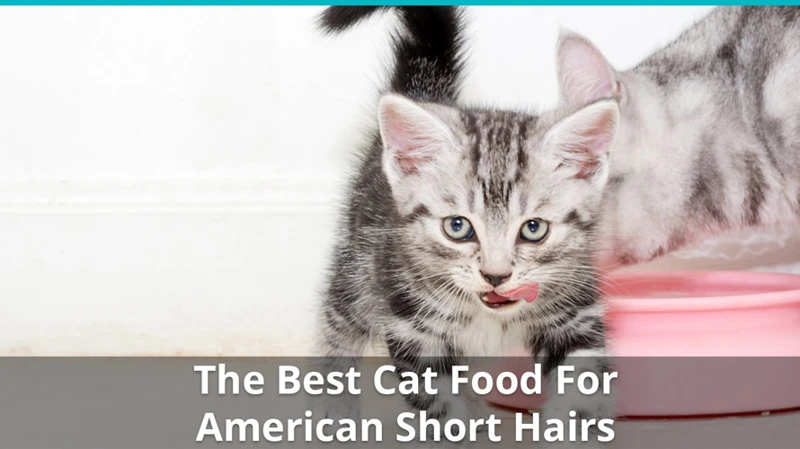
As an American Shorthair cat parent, it is crucial to understand the special dietary needs of your feline friend, especially if they are suffering from any health issues. Feeding your cat the correct food based on their health condition can improve their overall well-being and help manage their health conditions. In this section, we will discuss the different special dietary needs that American Shorthair cats may require based on their health issues, including weight management diets, diabetic diets, urinary tract health diets, and other special diets. It is essential to address these dietary needs to prevent further health complications, so let’s dive into the specifics and find the appropriate solution for your cat’s health problem. To learn more about genetic health issues in American Shorthair cats, dealing with arthritis, preventing dental issues or allergies, or managing diabetes and urinary tract issues, check out our guides with essential tips and advice on how to handle these problems effectively.
Weight Management Diets
Maintaining a healthy weight is crucial for the overall well-being of American Shorthair Cats. Obesity increases the risk of several health issues, including diabetes, heart disease, and arthritis. It’s essential to manage their weight and keep them on a healthy diet.
Weight management diets are specially formulated to help cats lose weight and maintain a healthy weight. These diets are low in calories and contain high levels of protein, fiber, and other essential nutrients. They help cats feel full for longer and support their metabolism, which aids in weight loss.
When choosing a weight management diet for your American Shorthair, it’s essential to check the ingredients list on the label. Look for high-quality protein sources like chicken or salmon, and avoid diets that contain fillers like corn or soy. It’s also essential to ensure that the diet meets the Association of American Feed Control Officials (AAFCO) nutritional requirements.
Here is a comparison table of popular weight management cat diets available in the market:
| Product Name | Key Features | Price | Customer Rating |
|---|---|---|---|
| Hill’s Prescription Diet Metabolic Cat Food | High protein, low-fat formula | $70 (8.5 lb bag) | 4.5/5 |
| Blue Buffalo Weight Control Cat Food | Grain-free, high protein, and low-calorie formula | $36 (5 lb bag) | 4.8/5 |
| Purina One Indoor Weight Management Cat Food | Contains real turkey and rice, high in protein, low in fat | $23 (3.5 lb bag) | 4.7/5 |
It’s vital to consult with your veterinarian before making any significant changes to your American Shorthair’s diet, especially if they have underlying health issues. They might recommend specific weight management diets based on your cat’s individual needs, such as diabetic cat food or food for cats with urinary tract issues.
Incorporating a weight management diet into your cat’s overall health plan can help them live a longer, healthier life. Providing them with plenty of water and exercise, as well as regular vet checkups, can help maintain their weight and prevent health issues related to obesity.
Diabetic Diets
Managing diabetes in American Shorthair cats involves adjusting their diet in order to maintain stable blood sugar levels. A diabetic diet consists of a balanced mix of proteins, carbohydrates, and fats, but with a focus on controlled levels of carbohydrates in order to prevent spikes in blood sugar.
Here are a few key aspects of a diabetic diet for American Shorthair cats:
- Low Carbohydrates: A diabetic cat’s diet should consist of less than 10% carbohydrates. This means avoiding foods that are high in sugars and starches, such as grains or fruits. Instead, choose foods that are high in protein and low in carbohydrates, such as chicken or turkey.
- Fiber: Adding fiber to a cat’s diet can help moderate blood sugar levels. Choose foods high in fiber, such as green beans or psyllium, but be careful not to overdo it as too much fiber can lead to digestive issues.
- Consistent Meal Times: Timing meals and snacks in a consistent manner can help regulate blood sugar levels. Aim for 2-3 small meals per day, or ask your vet for advice on the best feeding schedule for your cat.
- Prescription Diets: In some cases, prescription diabetic diets may be recommended by your vet. These diets are specifically formulated to manage blood sugar levels and meet the nutritional needs of diabetic cats.
If your American Shorthair cat has been diagnosed with diabetes, it is important to work with your vet to develop the best dietary plan. Additionally, be sure to monitor your cat’s blood sugar levels regularly and report any changes to your vet immediately.
Click here to learn more about diabetes care for American Shorthair cats.
Urinary Tract Health Diets
Keeping your American Shorthair’s urinary tract healthy is crucial for their overall wellbeing. Cats with urinary tract issues require a specialized diet that helps to keep their urinary tract healthy. Here are some key points to keep in mind when it comes to urinary tract health diets for American Shorthair cats:
Ingredients: Urinary tract health diets should contain ingredients that promote a healthy urinary tract, such as cranberries, blueberries, vitamin C, and omega-3 fatty acids. These ingredients can help to prevent urinary tract infections and reduce inflammation.
Protein and Minerals: These diets should also be low in magnesium and phosphorus levels to prevent the formation of crystals and stones in the urinary tract. High-quality protein sources, such as chicken and turkey, should be included and it may be beneficial to supplement with additional taurine and arginine.
Water Intake: Urinary tract health diets may also contain high moisture content, to support hydration and prevent the formation of crystals in the urinary tract. Alternatively, you can include wet food regularly in their diet.
Feeding Frequency: Your vet can also advise you on the frequency of feeding urinary tract health diets. Cats may need to eat smaller, more frequent meals to maintain urinary health.
It’s essential to get advice from your vet before making any diet changes to address urinary tract health issues. Your vet may recommend adding these diets alongside specific treats or supplements to speed up recovery or prevention of such issues.
Remember that the health of your American Shorthair’s urinary tract is closely linked to their overall health, so prevention or early detection is crucial. Ensure your cat gets an annual check-up with your veterinarian for proper preventative wellness care.
In case you want to learn about other common health issues in American Shorthair cats, check our article about genetic health issues in American Shorthair cats.
Other Special Diets
When it comes to special diets for American Shorthair cats with health issues, there are a few other conditions that require unique dietary considerations beyond obesity, diabetes, and urinary tract issues. These health issues include arthritis, dental problems, and allergies.
Arthritis: Just like humans, cats can develop arthritis. This can cause them pain, inflammation, stiffness, and affect their mobility. To help alleviate these symptoms, it is recommended to incorporate joint-friendly supplements, such as glucosamine and chondroitin, into your cat’s diet. Additionally, feeding your cat food that contains omega-3 fatty acids can also provide anti-inflammatory benefits, helping improve joint health. Our previous article provided a more detailed approach to caring for an American Shorthair cat diagnosed with arthritis.
Dental problems: Dental problems are common in cats, especially as they age. To help maintain strong, healthy teeth, it is important to provide a balanced and nutritious diet. Feeding your cat dry food can also help reduce the buildup of plaque and tartar, preventing the development of periodontal disease. Consider incorporating dental treats or toys into your cat’s diet to help with teeth cleaning and gum massaging. Check our previous article for more information on keeping your cat’s teeth healthy.
Allergies: American Shorthair cats can also develop allergies, which can cause skin irritation, itching, and inflammation. To address and prevent these issues, consider feeding your cat a diet rich in omega-3 and omega-6 fatty acids, as these can help improve skin health and the immune system. Avoid feeding your cat diets that contain common allergens, such as grains, beef, and chicken. Instead, opt for novel protein diets, such as venison or duck, as these can help alleviate allergy symptoms. Learn more about managing allergies in American Shorthair cats in our previous article.
Although these diets may not pertain to every American Shorthair cat, keeping these conditions in mind while shopping for cat food could help in maintaining the health of your cat. It is crucial to reach out to your vet before putting your cat on a special diet for any health issue to ensure it is the best course of action for the cat.
Catering to Your American Shorthair Cat’s Special Dietary Needs
As a cat owner, catering to their dietary needs is essential for their health and well-being. This is especially true if your American Shorthair cat has special dietary needs due to certain health issues. It can be perplexing to determine which foods are safe and healthy for them, but with proper guidance and knowledge, you can ensure that they receive the necessary nutrients. In this section, we will discuss some helpful tips and strategies on how to cater to your American Shorthair cat’s special dietary needs.
Consulting with Your Vet
When it comes to catering to your American Shorthair cat’s special dietary needs, consulting with your vet is crucial. Your vet has a wealth of knowledge and experience when it comes to determining your cat’s health issues and the appropriate diet to address them.
Here are some steps you can take to consult with your vet:
- Schedule a visit: Make an appointment with your vet to discuss your cat’s health issues and dietary needs. This will also give your vet a chance to assess your cat’s overall health and provide any necessary treatment.
- Bring relevant information: Before your visit, gather any information related to your cat’s health issues, including medical history, medications, and previous diets. This information can help your vet make an accurate diagnosis and recommend the appropriate diet.
- Ask questions: Don’t be afraid to ask your vet questions about your cat’s health and dietary needs. Clarify any doubts or concerns you have to ensure that you fully understand your cat’s conditions and how to manage them.
- Follow your vet’s recommendations: Your vet may recommend a particular diet or feeding method based on your cat’s health issues. It’s essential to follow their recommendations precisely to ensure that your cat’s needs are well managed.
Remember that your vet is your partner in maintaining your American Shorthair cat’s health and well-being. With their help, you can provide your cat with the necessary nutritional support to keep them happy and healthy.
Choosing the Right Cat Food
When it comes to choosing the right cat food for your American Shorthair cat with special dietary needs, there are certain factors to consider. It is important to read the labels and understand the ingredients to ensure that the food meets your cat’s specific health requirements. Here are some tips for selecting the right cat food:
- Look for quality ingredients: Choose cat food that contains high-quality proteins, such as chicken, beef or fish. Avoid cat food that contains fillers, by-products, and artificial preservatives.
- Consider your cat’s age: If your cat is a kitten or senior, choose cat food that is formulated for their specific age group.
- Consult with your vet: Your veterinarian can provide recommendations for dietary needs based on your cat’s individual health issues. They can also suggest brands of cat food and supplements to help meet your cat’s specific nutritional needs.
- Check the nutrient content: Look for cat food that meets the nutritional needs of your American Shorthair cat, especially if they have health issues. This may include lower levels of certain nutrients that can aggravate health issues or higher levels of nutrients that are important for their overall health.
- Consider food texture: Some cats may prefer wet food over dry food, or vice versa. Consider offering different textures to determine what your cat prefers.
- Choose reputable brands: Look for cat food brands that have a good reputation and are known for producing high-quality, nutritious cat food.
By taking the time to research and choose the right cat food for your American Shorthair cat with special dietary needs, you can help ensure they receive the proper nutrition to maintain their health and well-being.
Alternative Feeding Methods
When it comes to catering to the special dietary needs of American Shorthair cats with health issues, alternative feeding methods can be a lifesaver. These methods allow pet owners to provide their cats with the necessary nutrients and medicines, even if the cat is unwilling or unable to consume their regular diet. Here are a few alternative feeding methods to consider:
- Feeding tube: In severe cases where cats are unable to eat on their own, a feeding tube may be necessary. Your vet can surgically place a feeding tube through which you can administer prescribed food, liquids, and even medications.
- Wet food: Wet food is often more palatable than dry food, making it a great choice for cats with health issues who have difficulty eating. Many brands offer specialized wet food for cats with weight management, diabetes, or urinary tract problems.
- Dry food: On the other hand, some cats may prefer the texture of dry food or find it easier to eat. Again, there are specialized dry foods available for cats with health issues that meet their nutritional needs.
- Food toppers: Food toppers or flavor enhancers can help entice cats to eat their regular food. These products come in a variety of flavors and consistencies that can add a boost of nutrition and excitement to your cat’s daily diet.
- Food puzzles: Food puzzles are a great way to increase your cat’s mental and physical stimulation while still providing them with the necessary nutrients. These puzzles can be filled with specialized diets, medicine, or even homemade treats.
Remember that choosing the right alternative feeding method for your cat’s special dietary needs should always be done in consultation with your vet. They can provide you with the necessary guidance and advice to ensure your beloved American Shorthair cat receives the best care possible.
Conclusion
In conclusion, it is essential to understand the special dietary needs of American Shorthair cats with health issues to ensure their well-being and longevity. Obesity, diabetes, and urinary tract issues are common health concerns that can be addressed with the appropriate diets.
Catering to your cat’s special dietary needs entails consulting with your vet to determine a suitable diet plan, selecting high-quality cat food that meets their nutritional requirements, and considering alternative feeding methods like feeding smaller meals more frequently or using puzzle feeders to promote exercise and mental stimulation.
It is also crucial to monitor your cat’s weight, body condition, and overall health regularly to detect any changes or concerns as early as possible. By providing proper nutrition and care, you can help your American Shorthair cat live a healthy and happy life. Remember to always consult with your vet before making any significant changes to your cat’s diet or routine and prioritize providing love, affection, and attention for your furry friend.
Frequently Asked Questions
What are some common health issues that American Shorthair cats face?
American Shorthair cats are susceptible to obesity, diabetes, and urinary tract issues.
What are some symptoms of obesity in cats?
Some symptoms of obesity in cats include difficulty breathing, lethargy, and difficulty grooming themselves.
Can diet help prevent or manage diabetes in American Shorthair cats?
Yes, a specialized diabetic diet can help manage diabetes in cats and lower their blood sugar levels.
What are some symptoms of diabetes in cats?
Some symptoms of diabetes in cats include excessive thirst, frequent urination, and weight loss.
How can I help prevent urinary tract issues in my American Shorthair cat?
You can prevent urinary tract issues by providing your cat with plenty of fresh water, feeding them a diet that promotes urinary health, and encouraging regular exercise.
What kind of diet is suitable for overweight American Shorthair cats?
A weight management diet that is high in protein and low in calories is suitable for overweight American Shorthair cats.
What kind of diet is suitable for diabetic American Shorthair cats?
A diabetic diet for cats should be high in protein and low in carbohydrates to help manage blood sugar levels.
What kind of diet is suitable for American Shorthair cats with urinary tract issues?
A urinary tract health diet that is low in magnesium and promotes hydration is suitable for American Shorthair cats with urinary tract issues.
Do I need to consult a vet before changing my cat’s diet?
Yes, it is important to consult your vet before changing your cat’s diet to ensure that it is suitable for their specific health needs.
Can alternative feeding methods help manage my American Shorthair cat’s special dietary needs?
Yes, alternative feeding methods such as puzzle feeders and interactive toys can help manage your American Shorthair cat’s special dietary needs and promote exercise.

